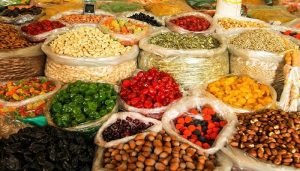
By Emmanuel Akinmola, Abuja
With Nigeria’s population projected to hit 400million people by 2050, the United Nations Food and Agricultural Organisation (FAO) has called for a decisive aion by the Nigerian government to ensure sustainable and inclusive food system transformation
According to the Nigeria food system assessment profile conducted by the international body in 2022, the FAO raised concerns that large food deficits remain a cardinal challenge to the country’s food system despite the potential to feed its growing population into the coming decades.
They stated that food self-sufficiency can be attained, not only through production technologies but also entrenching sustainable and inclusive food systems in the structure, governance and administration.
The recently released assessment highlighted the gaps in Nigeria’s food system to include low yields, post-harvest losses, food safety concerns and climate change impacts, coupled with weak implementation of relevant policies and legislation, noting that all the gaps combined to stagnate the predominantly rain-fed agriculture production.
A statement signed by the FAO National Communication Specialist, David Tsokar stated that the assessment was part of a joint initiative launched by the European Union (EU), the Food and Agriculture Organization (FAO), and the French Research Centre for Agricultural Development, CIRAD, in collaboration with the Government of Nigeria.
It said the purpose was to identify key constraints and entry points for understanding the bottlenecks to sustainable food systems, and to propose innovative policy and investment solutions to make food systems more sustainable and inclusive.
Commenting on the report, the FAO Country Representative in Nigeria and to the Economic Community of West African States (ECOWAS), Fred Kafeero highlighted four key challenges hindering the country from transitioning towards a desirable sustainable food system to include food system vulnerability to internal and global shocks; underdeveloped agrifood value chains; food system vulnerability to climate change and natural resource degradation; and poor diet quality and high prevalence of food and nutrition insecurity”.
He observed that the current food systems are unable to fulfill their purpose of providing nutritious and healthy food for all and contributing to enhanced livelihood opportunities in an environmentally sustainable way as they are being challenged by several factors, including changing diets, technology, urbanization and climate change.
He stated, “There may be enough food to feed everyone – preventing the dual health burdens of malnutrition and obesity. However, the economic and territorial imbalances are such that food systems do not generate fair economic returns for all actors, particularly for small-scale producers, triggering an endless cycle of precariousness and poverty. Current food systems need to be transformed if we are to achieve Sustainable Development Goals.”








